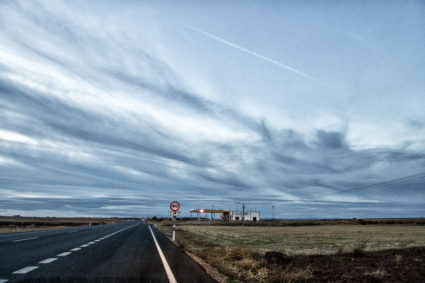
Valentino Garavani, the iconic Italian designer known for his glamorous gowns and signature “Valentino red,” has died at 93.

Our December 2020 pick for Now Read This, the PBS NewsHour's book club with The New York Times, is Ling Ma's "Severance." Become a member of the Now Read This book club by joining our Facebook group, or by signing up to our newsletter. Learn more about the book club here.
The prologue of Ling Ma's "Severance" was inspired by an unlikely pair of cultural works. The author had been re-watching the films of Terrence Malick, and was struck by his 1978 film "Days of Heaven," in particular actress Linda Manz's narration. Then she watched the zombie television show "The Walking Dead."
"I thought I could somehow bridge the two," Ma recently told the PBS NewsHour. "What if Terrence Malick directed a zombie B movie and this was the voiceover? Would that be in bad taste?"
The next day, Ma began writing "Severance." From the start, she tried to indicate that it would be a "different kind of apocalyptic narrative," focused on a central group of characters who find themselves among the last survivors of a deadly pandemic. In the opening scene of the story, as they scramble to figure out how to survive, the group frantically begins Googling everything, from how to survive in the wild to how to build a fire to how to shoot a gun.
"Returning to the refrain of 'We Googled…' gave a charge of urgency each time. This page wrote itself pretty quickly, partly because repeating this sentence template gave the writing some bounce," Ma said of the prologue.
Ma shares more on this first scene in her annotations below.
After the End came the Beginning. And in the Beginning, there were eight of us, then nine–that was me–a number that would only decrease. We found one another after fleeing New York for the safer pastures of the countryside. We'd seen it done in the movies, though no one could say which one exactly. A lot of things didn't play out as they had been depicted on-screen. (1)
We (2) were brand strategists and property lawyers and human resources specialists and personal finance consultants. We didn't know how to do anything so we Googled everything. We Googled how to survive in the wild, which yielded images of poison ivy, venomous insects, and bear tracks. That was okay but we wanted to know how to go on the offensive. Against everything. We Googled how to build fire and watched YouTube videos of fires being lit with flint against steel, with flint against flint, with magnifying glass and sun. We couldn't find the requisite flint, didn't know how to identify it even, and before we tried using Bob's bifocals, someone found a Bic in a jean jacket. The fire brought us through the night and delivered us into a morning that brought us to a deserted Wal-Mart. We stockpiled bottled water and exfoliating body wash and iPods and beers and tinted moisturizer in our stolen Jeeps. In the back of the store we found guns and ammo, camo outfits, scopes and grips. We Googled (3) how to shoot gun, and when we tried, we were spooked by the recoil, by the salty smell and smoke, by the liturgical drama of the whole thing in the woods. But actually we loved to shoot them, the guns. We liked to shoot them wrong even, with a loose hand, the pitch forward and the pitch back. Under our judicious trigger fingers, beer bottles died, Vogue magazines died, Chia Pets died, oak saplings died, squirrels died, elk died. We feasted.
Google would not last long. Neither would the internet. Or any of the infrastructure, but in the beginning of the Beginning let us brag, if only to ourselves in the absence of others. Because who was there to envy us, to be proud of us? Our Googlings darkened, turned inward. We Googled maslow's pyramid (4) to see how many of the need levels we could already fulfill. The first two. We Googled 2011 fever survivors, hoping to find others like us, and when all we found were the same outdated, inconclusive news articles, we Googled 7 stages grief (5) to track our emotional progress. We were at Anger, the slower among us lagging behind at Denial. We Googled is there a god, clicked I'm Feeling Lucky, and were directed to a suicide hotline site. In the twelve rings it took for us to hang up, we held our breaths for someone else, some stranger's voice confirming that we weren't the only ones living, despite Bob's adamant assertions (6). There was no answer.
From this and other observations, it was deduced that we were alone, truly alone.
Sustain our coverage of culture, arts and literature.